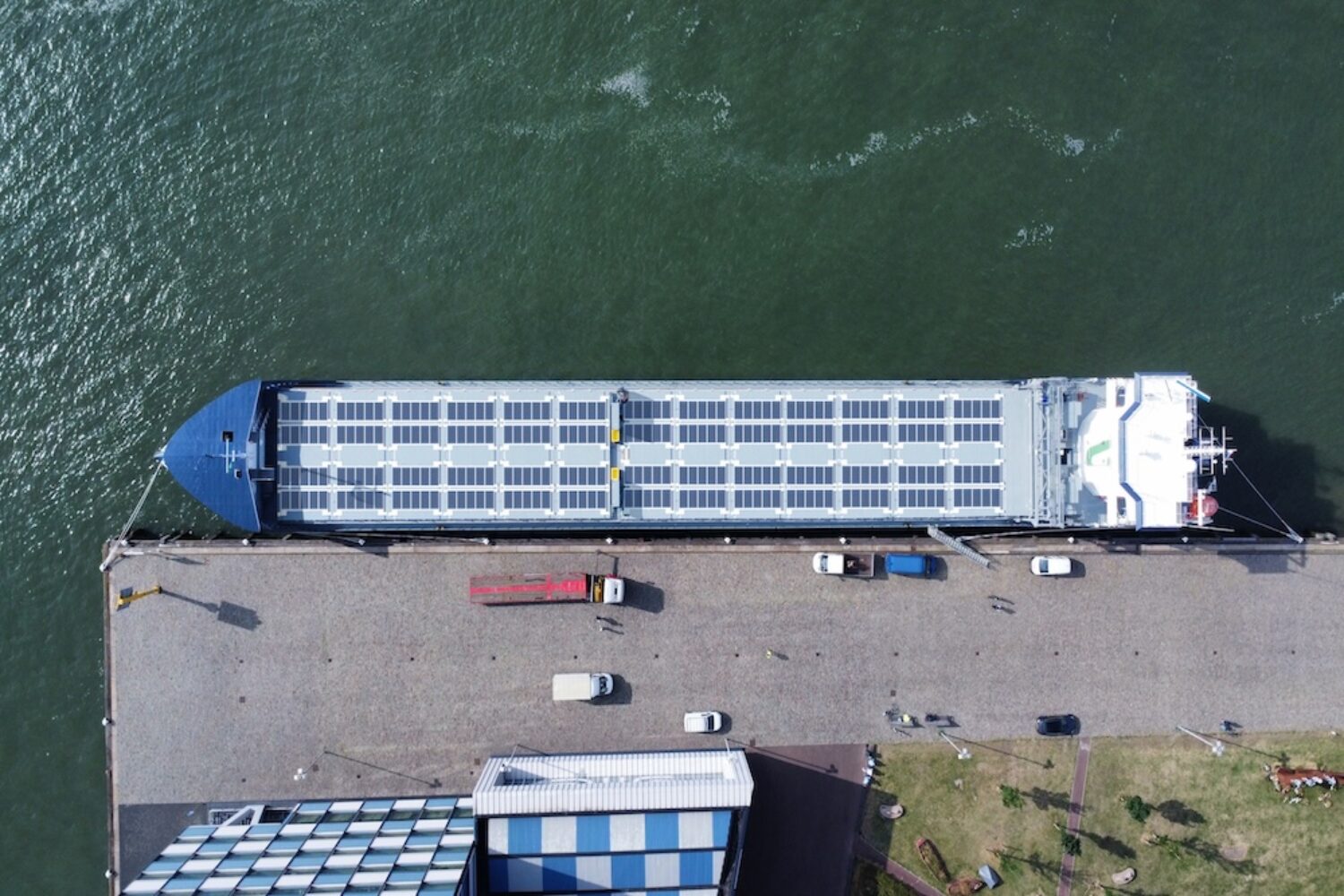Wattlab, a Dutch start-up for maritime solar technology, has unveiled its new “Solar Deck” system.
This is a modular and scalable system of deck-mounted solar panels that significantly reduce fuel consumption and CO2 emissions.
Based on the installation on a seaworthy general cargo vessel, the “Solar Deck” system also combines significant savings in accordance with EU maritime and EU ETS regulations. According to the company, the expected return on investment is three to five years.
Founded in 2017, Wattlab initially focused on the use of solar energy in the inland shipping sector in its first few years of operation and developed the “Solar Flatrack” system for this purpose. This is a modular solar energy system consisting of wafer-thin, movable and stackable integrated solar modules and inverters. To date, these solar panels have already been installed on more than 25 inland waterway vessels.
Wattlab is now expanding into the maritime industry with ‘Solardeck’ with the aim of reducing fuel costs for ocean-going vessel owners and facilitating the further decarbonization of the maritime sector.
“When developing ‘Solardeck’, we always put the requirements of the shipowner first. We know that ‘time is money’. That’s why the ‘Solardeck’ can be installed in a very short time using container twist locks. In addition, normal loading and unloading operations are not affected,” explains Bo Salet, CEO of Wattlab. “But we also know that – especially for cargo ship owners – ‘space is money’. In the case of deck cargo, such as offshore wind blades, the ship’s crew can store the solar deck within the volume of a 20-foot container, freeing up the deck for the cargo.”
Development of solar deck with Vertom and TNO
According to Wattlab, “SolarDeck” has proven itself in tests: In collaboration with the Dutch Organization for Applied Scientific Research (Nederlandse Organisatie voor toegepast-natuurwetenschappelijk onderzoek, TNO for short) and the international shipping company Vertom, Wattlab has spent the past 18 months developing and testing the new system on board Vertom ‘s 7,280 DWI all-purpose dry cargo vessel “Anette” as part of a project co-funded by the European Union’s Just Transition Fund. The results of the test phase are positive.
“The test results show that ‘Solardeck’ performs well in the harsh environment of coastal shipping – in terms of salinity and rough seas. As the salt water can flow away from the solar modules unhindered, there is no risk of a salt crust forming. The ‘solar deck’ therefore generates the expected output,” explains Salet. “What’s more, the system is robust enough to withstand storms as well as the usual daily activities on board a sea freight ship – and to be safe at all times.”
Reducing fuel consumption and emissions
Based on the test results (Vertom’s “Anette” is 119 meters long and 14 meters wide), Wattlab predicts a reduction of 20 MT of fuel and 68 MT of CO2 emissions per year for this type of coaster. These figures are significant enough to have an impact on a shipowner’s EEXI and CII scores, in addition to potential savings from EU fuel sector regulations and the EU Emissions Trading Scheme. For larger vessels, the efficiency gains will increase further.
“We are excited to introduce SolarDeck to the maritime industry and show shipowners what this system can mean for their operations,” concluded Salet. “SolarDeck is not just a green upgrade. With a payback period of three to five years, it is a smart investment.”
Wattlab’s SolarDeck pilot project was co-financed by the European Union’s Just Transition Fund (JTF). The JTF is a new instrument of the Cohesion Policy 2021-2027 and forms the first pillar of the Just Transition Mechanism in the context of the European Green Deal, which aims to achieve climate neutrality in the EU by 2050.













